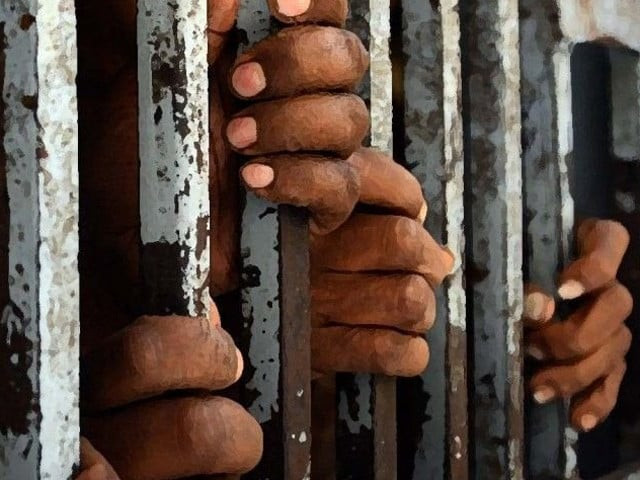52 prisoners still in jails despite serving out sentences
They have been behind bars for years due to inability to pay ‘blood money’

Fifty-two prisoners have been languishing in nine major jails of Sindh for years due to their inability to pay the “blood money” even though they have served out their jail terms, according to the official documents available with The Express Tribune.
According to the breakdown, nine such prisoners are in Karachi’s Central Jail, 19 in Hyderabad’s Central Jail, three in Sukkur’s Central Jail, four in Larkana’s Central Jail, six in Khairpur’s Central Jail, two in Mirpurkhas’s Central Jail, seven in District Jail Malir and one each in District Jail Badin and Hyderabad’s Nara Jail.
Karachi’s Central Jail has nine prisoners who have served out their imprisonment sentences but have been unable to pay the fines. One inmate has completed his jail term four years ago, but he is still behind bars because he cannot pay the blood money amounting to Rs.80,1045 fine.
Another prisoner has been languishing in the jail for the past three years even though he has already completed a jail term awarded to him by the court of law in a murder case, but he does not have Rs.1.184 million to pay the blood money. There are four prisoners who have completed their jail terms almost three years ago, two have served out their sentences one and a half year ago, and one has been in the prison despite completing his jail term one year ago. They are still behind bars due to their inability to pay the fines.
Similarly, there are 19 prisoners in Hyderabad’s Central Jail who have not been released despite completing their jail terms only because they have not been able to pay the blood money. Some of them have served out their jail terms four years ago. All the 52 prisoners collectively owe more than Rs80.5 million in the blood money. As per the blood money law, if a person kills or injures someone in an attack, he has to pay a reasonable amount (blood money) which is determined by the court of law. The blood money is mostly imposed on convicted murderers. Unintentional murder is one in which the murderer does not intend to kill, but by his action, the life of another person or persons is lost. This usually happens in traffic accidents or other accidents that happen in factories and companies. There are some cases in which the murder section has been invoked and the court awarded the sentence according to law while the convict has also been ordered to pay the blood money as compensation to the heirs of the deceased.
The blood money can also be imposed in fighting cases, the ones in which the murderer does not intend to kill, but his attack kills his rival. Similarly, if someone gets injured, the amount of blood money is determined according to the wounds to his body.
Published in The Express Tribune, January 7th, 2023.



















COMMENTS
Comments are moderated and generally will be posted if they are on-topic and not abusive.
For more information, please see our Comments FAQ